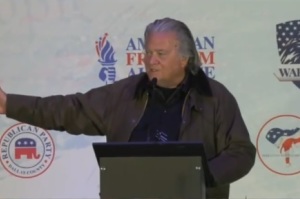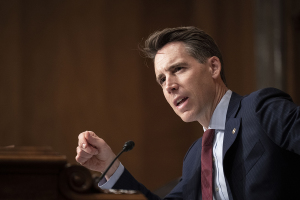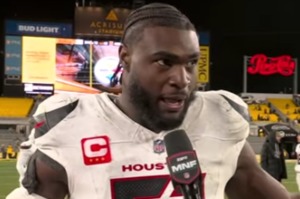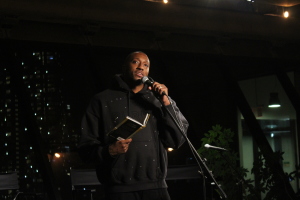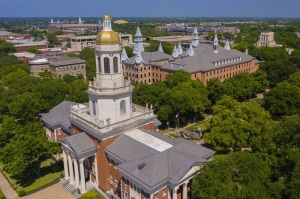Citing First Amendment, outspoken minority of pastors refuse to close churches amid pandemic
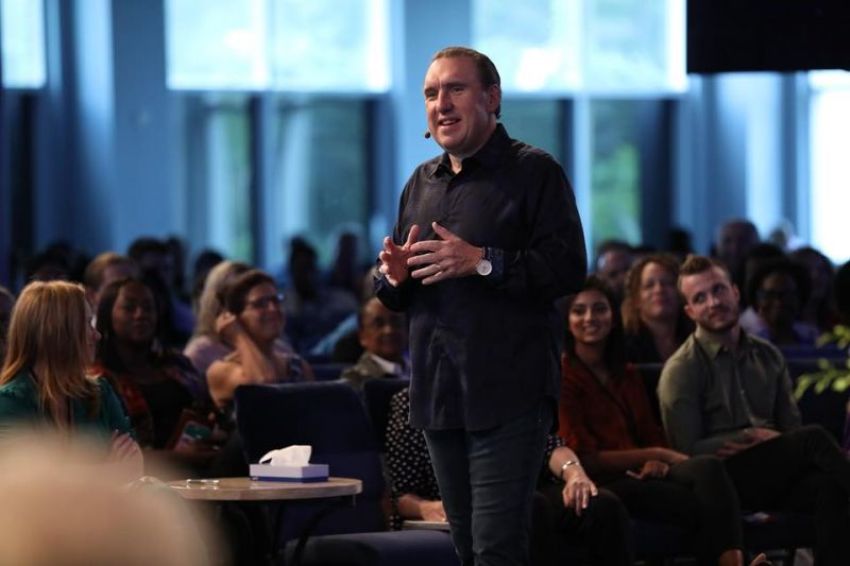
Citing First Amendment rights, an outspoken minority of pastors across the country are resisting calls from federal and local government authorities to close their churches amid the new coronavirus pandemic despite facing fines and arrests.
Some legal experts, however, disagree with using the First Amendment as a defense for disobeying government authorities in the throes of a pandemic.
On Monday, pastor Rodney Howard-Browne, leader of Revival International Ministries and The River at Tampa Bay Church in Florida, became the first high-profile pastor in the burgeoning movement to insist his First Amendment rights were being violated after he was arrested for leading two large worship services on Sunday.
Howard-Browne was charged with unlawful assembly and violation of public health emergency rules — both second degree misdemeanors — for intentionally and repeatedly hosting church services with hundreds of members in attendance, despite knowing he was in violation of a stay-at-home order issued by Gov. Ron DeSantis for South Florida, the Hillsborough County Sheriff’s Office said.
With legal help from the Liberty Counsel, a nonprofit litigation firm, Howard-Browne has decided to fight the charges.
“I know the sheriff said we can’t hide behind the First Amendment, but we can because I was sworn in as a citizen of the Constitutional Republic of the United States and I raised my hand to pledge to defend the Constitution of America against enemies foreign and domestic,” he said during a Facebook Live broadcast Monday night. “The nation is under attack and whatever you give up this side you’ll never get it back.”
He argued that it makes no sense that churches are being closed while stores like Walmart, Costco and Lowe’s Home Improvement were being allowed to operate. Restaurants, he highlighted, are also being allowed to serve takeout despite a clear risk of spreading the virus.
“As long as you can keep Lowe's open and Walmart open and Costco and every other place and you go in there, talk about social distancing. I mean it’s insane. There’s so many holes in this thing. Even the people who deliver the food … how do you know where the food’s been cooked? Who’s making it? How do you know that they don’t have the virus?” he asked.
“Somebody said, 'Well, they’re gonna catch it at the church.' I beg to differ, they’re at church one Sunday morning and six-and-a-half days a week they’re everywhere else. How do you know it wasn’t the last trolley where you put your groceries in that wasn’t infected? How do you know it wasn’t the last restroom you went into? You don’t actually know. I know America is fighting with each other right now, which it’s the whole narrative man. Divide and conquer,” he said.
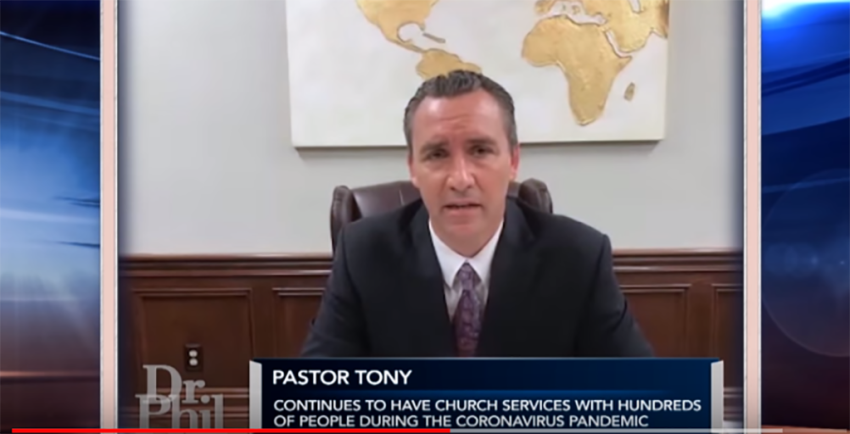
The Rev. Tony Spell of Life Tabernacle church in Central, Louisiana, was also hit with a summons for the misdemeanor charge of violating Gov. John Bel Edwards' March 16 order against gatherings of more than 50 people.
If convicted, Spell could face a fine of $500 and up to six months in jail, Central Assistant Police Chief Darren Sibley said in a Los Angeles Times report.
“He was very compliant. He signed the summons with no resistance,” Sibley said of Spell’s response to the summons delivered Tuesday. “He prayed for us before we left.”
Spell said he is not ashamed of being charged with violating the governor's stay-at-home order.
“Never been more proud to be persecuted for the faith like my Savior,” he said of the charge against him which includes six counts — one for every time he held a gathering since the governor’s order.
Howard-Browne and Spell are not alone in their conviction that churches should be allowed to stay open to conduct business as usual during the coronavirus pandemic.
A private test poll of 226 pastors conducted by Barna Research on March 20–23 showed that while a vast majority of pastors, 67%, have opted to close their churches to observe social distancing orders in light of the pandemic, 5% said their churches will remain open as normal. Another 17% said they plan on staying open for small gatherings or meetings, and 11% will remain open to offer crisis services.
On Sunday, Erik Meares of Evangel Bible College in Upper Marlboro, Maryland, livestreamed a confrontation on Facebook between members of a church who were not practicing social distancing and state police.
The Rev. Alvin Gwynn Sr., the outspoken, 74-year-old leader of Friendship Baptist Church in Baltimore, Maryland, told The Baltimore Sun that he has no plans of canceling his church services despite a directive from Gov. Larry Hogan issued on March 19 limiting the size of gatherings in the state to 10 people or fewer.
He said while he was preaching to 10 worshipers on Sunday four patrol cars containing “eight or nine officers” attempted to enter his church building but his security guards kept them out until he was done.
“You should have seen it, man, it looked like a police raid on a drug deal,” Gwynn said.
He explained that he will continue to abide by the 10 person limit for his services on a first-come, first-served basis, even for Easter, because he believes in the First Amendment.
“Remember, we have the First Amendment, which guarantees our most fundamental rights,” he said.
“Can the state stop people from coming out of their homes to worship? It’s a constitutional question. Congress can’t make laws governing worship or peaceful assembly. Our democracy wouldn’t be here if we didn’t have those rights,” he added.
James G. Hodge, director of the Center for Public Health Law and Policy at Arizona State University, an affiliate of the Network for Public Health Law, told McClatchy News in a recent interview that during a pandemic, asking churches to limit physical meetings is a legal request.
“You don’t have a right to assemble against the backdrop of known public health risk,” Hodge said.
He explained that officials typically have to go through legal processes to close an establishment or shut down public gatherings, but under a state of emergency everything is expedited.
“It’s not that we don’t have time for First Amendment interests, it’s that we must act fast,” he said. “What was opened today can be closed tomorrow.”
On a call with the heads of the nation’s largest historically black religious denominations and other faith leaders in the wake of the recent arrests of pastors, civil rights leader Al Sharpton urged them to not hold church services as Palm Sunday and Easter approaches.
“I have been arrested over 30 times for civil rights and civil disobedience — twice for 90 days and another 45 days for standing up for people’s civil and human rights. These separate incidents involving leaders of faith putting people’s lives in danger is not a matter of civil or human rights, nor is it a statement of faith. It is self-aggrandizing, reckless behavior of those Shepherds who would risk their sheep rather than lead their sheep,” Sharpton said in a statement Wednesday.
Family Research Council President Tony Perkins also responded to churches that have continued to gather as the coronavirus pandemic moves across the county, calling their action a “defiance of common sense.”
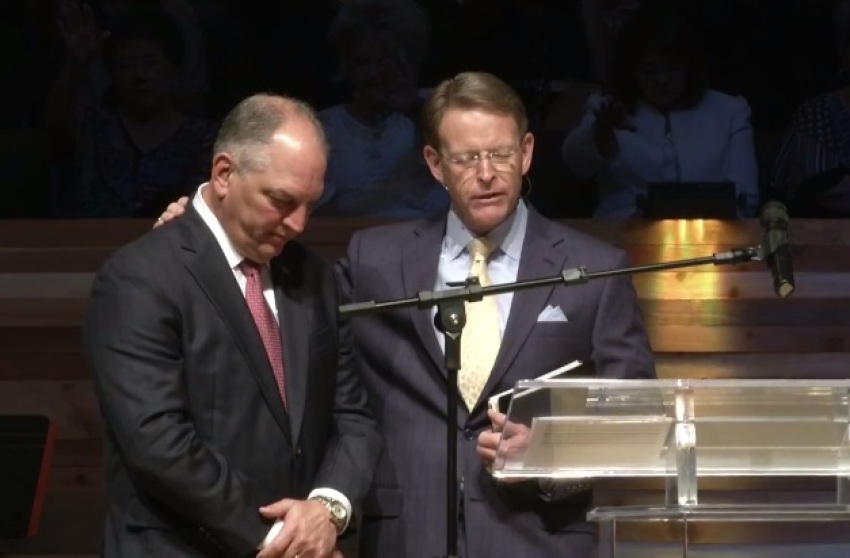
“At this point, holding public church gatherings in the midst of a public health crisis is not a defense of religious freedom — it is a defiance of common sense and the care of your congregation. Spread the Good News, not the virus!” tweeted Perkins, whose organization works "to advance faith, family and freedom in public policy and the culture from a Christian worldview."
Perkins’ statement came in the wake of a recent report by The Christian Post about 43 members of The Life Church of Glenview, Illinois, falling ill and at least 10 of them later testing positive for the coronavirus after a revival service in March.















